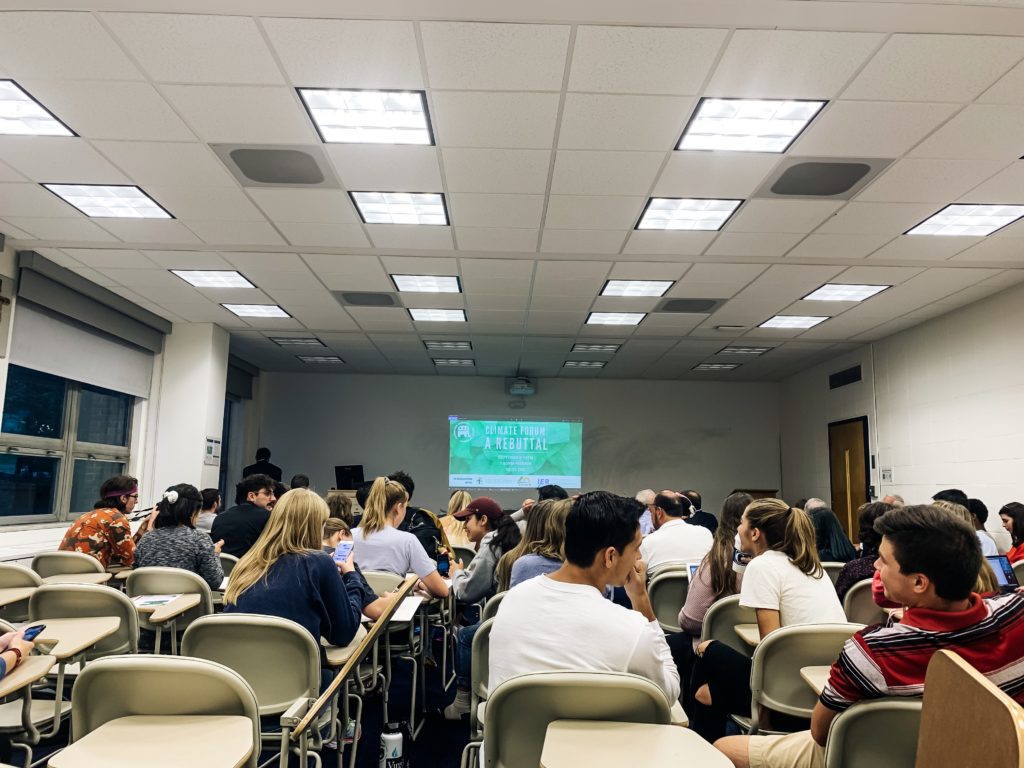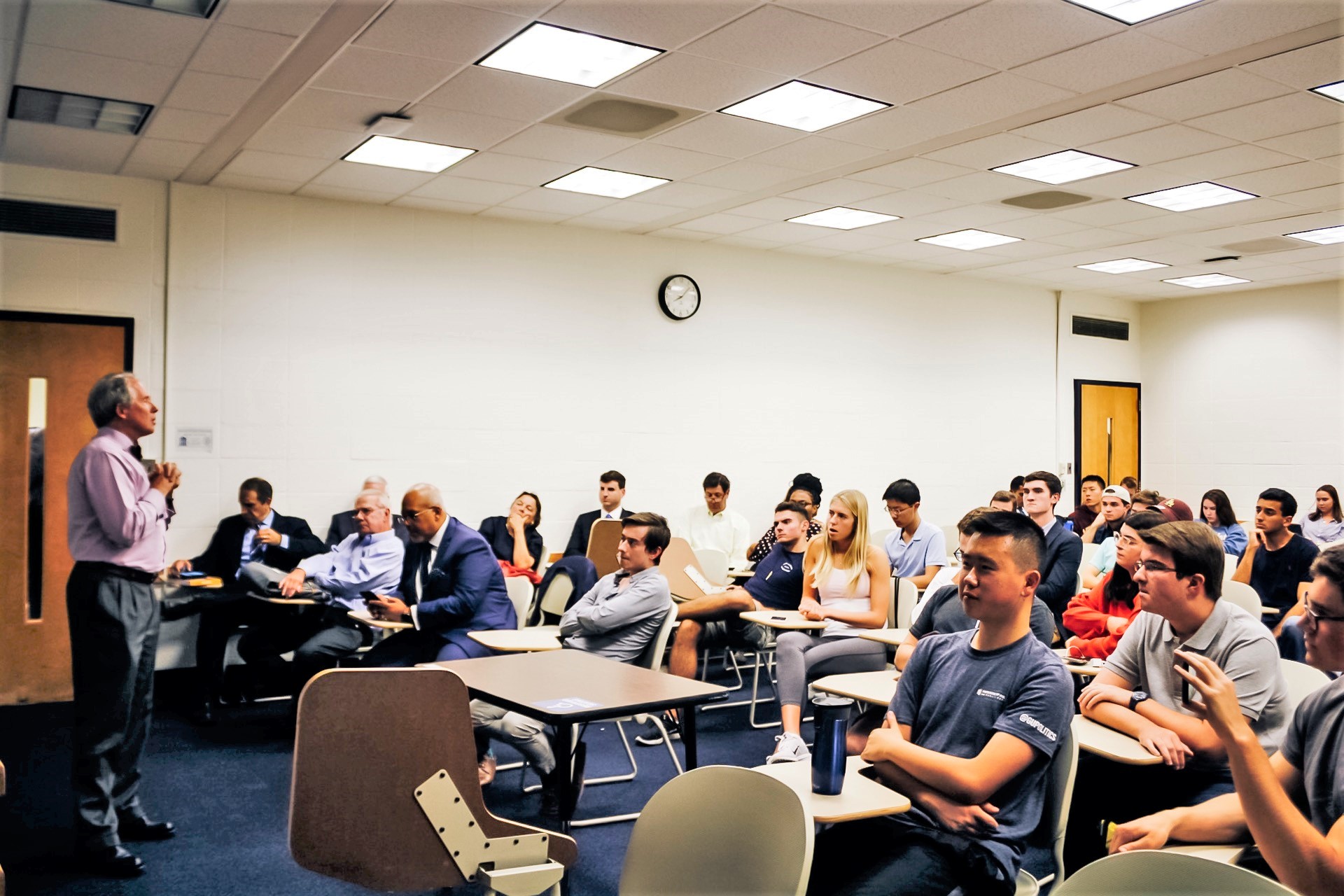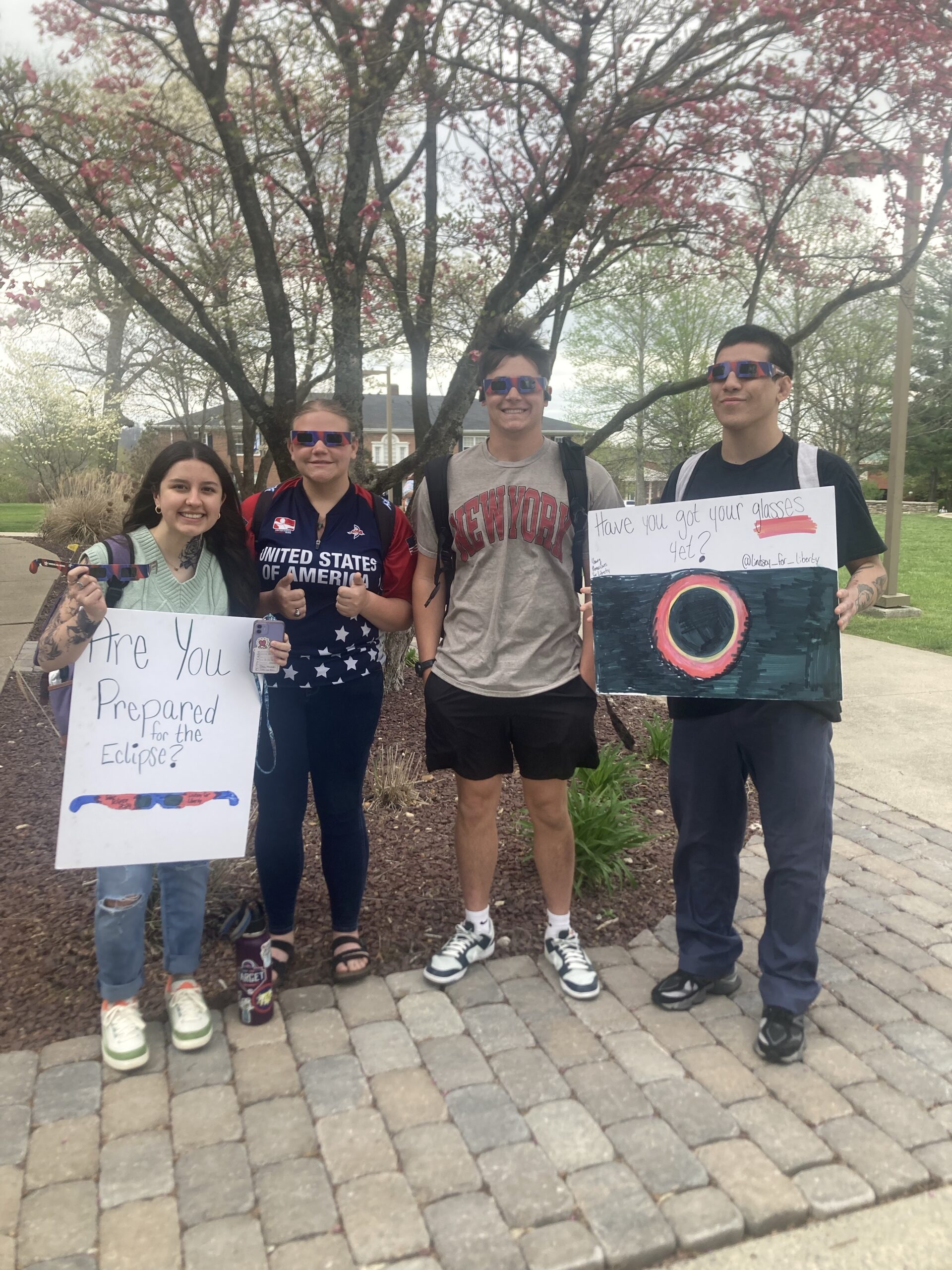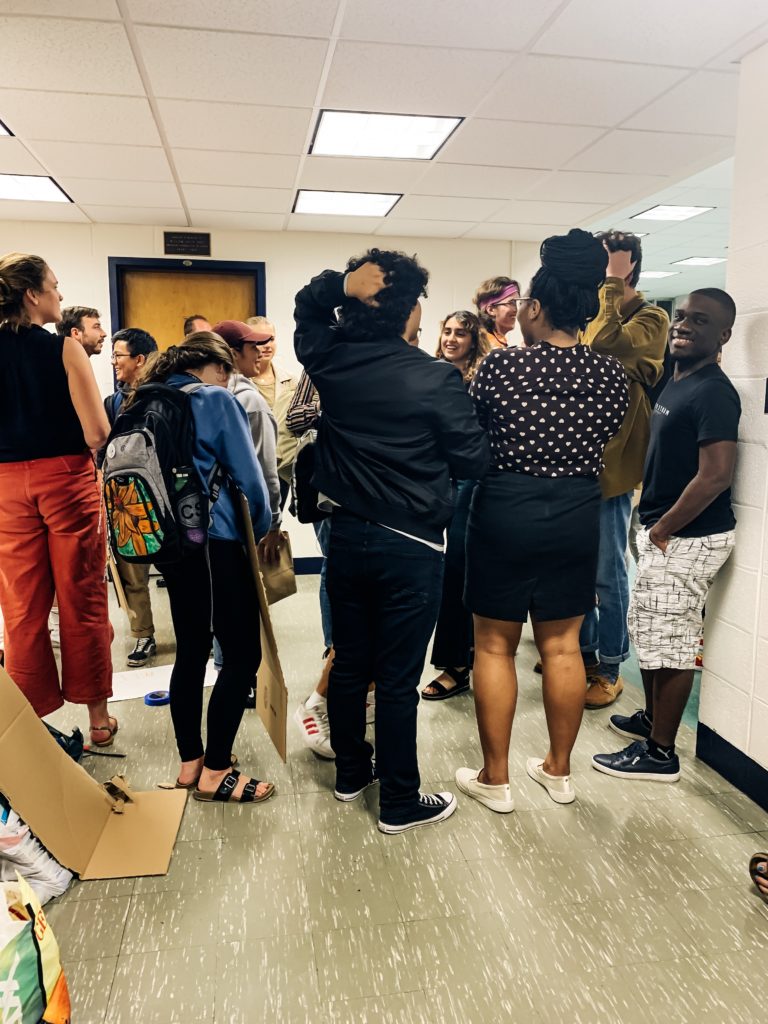
Attendees and protesters wait outside the venue as campus police sorts through the chaos.
CFACT had previously written about the climate protesters who attempted, but failed, to fully derail the climate rebuttal forum at Georgetown University on September 19. If you missed that, you can watch the video of the protesters here, and you can read the recap of the disruptions here.
What was ignored in that story because of all of the protesters’ actions was the excellent lectures given by the experts hosted at the College Republicans’ climate forum rebuttal. These subjects will be covered here, so as not to give the protesters what they want: the distraction from the facts and science presented at the forum.
First was Marc Morano, CFACT’s Director of Communications and editor of ClimateDepot.com. Marc, unfortunately, received the brunt of disruptions, as he was the first lecturer to present. Eventually, however, Marc was able to go on, and he explained the real agenda behind big-government climate policy.
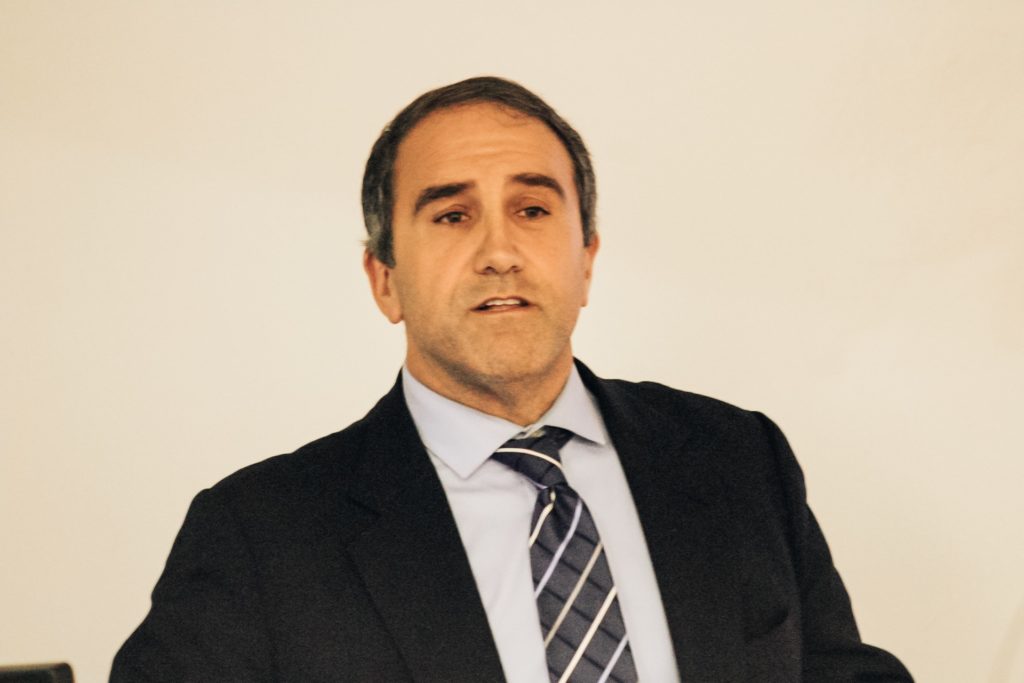
Marc quoted Christiana Figueres, the former Executive Secretary of the UN Framework Convention on Climate Change, who said in regards to climate policy and the economy: “The Industrial Revolution was also a transformation, but it wasn’t a guided transformation from a centralized policy perspective. This is a centralized transformation that is taking place because governments have decided that they need to listen to science. So it’s a very, very different transformation and one that is going to make the life of everyone on the planet very different.”
Morano’s point was that very little of UN climate policy has anything to do with solving real environmental problems. UN climate policy is designed to “centrally transform” the economy and all life, like Figueres said. If we really were facing a climate crisis, “the UN would be the worst organization to save us,” Marc has frequently said.
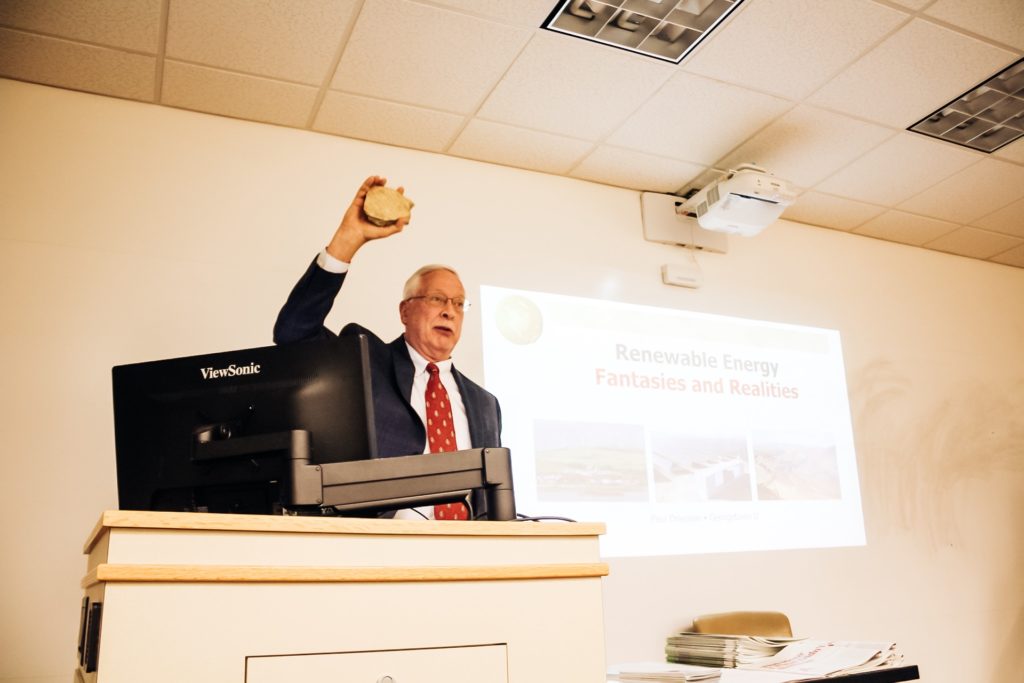
Paul Driessen also spoke to the forum. Driessen is CFACT’s senior policy adviser and the author of Eco Imperialism: Green Power, Black Death. Driessen discussed “renewable energy fantasies”, and addressed the huge environmental footprint that so-called green energy has. Just the wind turbines alone would have a huge negative impact on wildlife habitat.
“Instead of the 58,000 [wind turbines] we have now, the United States would need some 14 million turbines, each one 400 feet tall, each one capable of generating 1.8 megawatts at full capacity, when the wind is blowing at the proper speed. Assuming an inadequate 15 acres apiece, those monster turbines would require some 220 million acres! That’s well over twice the land area of California – without including transmission lines!”
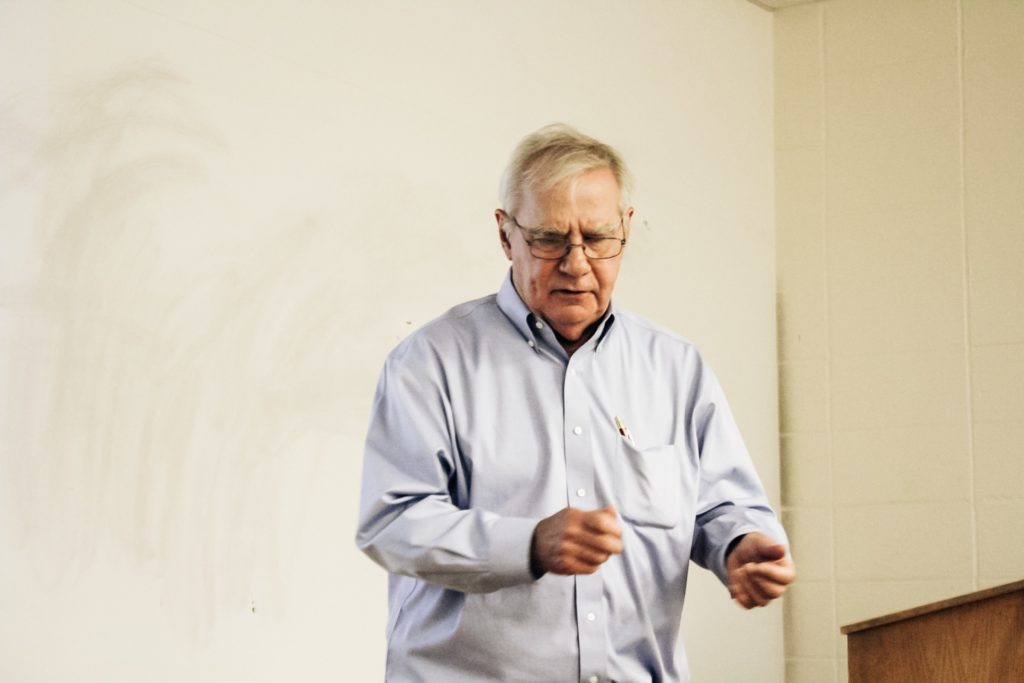
In addition to CFACT, the CO2 Coalition featured Dr. Caleb Rossiter (shown in the cover photo to this article), who is the Coalition’s executive director, and Dr. Pat Michaels, climatologist and former president of the American Association of State Climatologists.
Dr. Rossiter’s talk was titled: “There’s No Climate Crisis, Just an Energy Crisis: How Fossil Fuels Save Lives in Africa and America.” Rossiter explained that there is extreme energy poverty in the developing world, and we need to encourage the development of coal, oil, and gas in those countries to help the least fortunate – not cut them off from the energy the first world takes for granted every day.
Dr. Michaels’ talk was called “Observations, Models, and Prospective Global Warming.” He explained how the climate models used by the United Nations predict far too much warming, and are misinforming the public discussion on climate change.
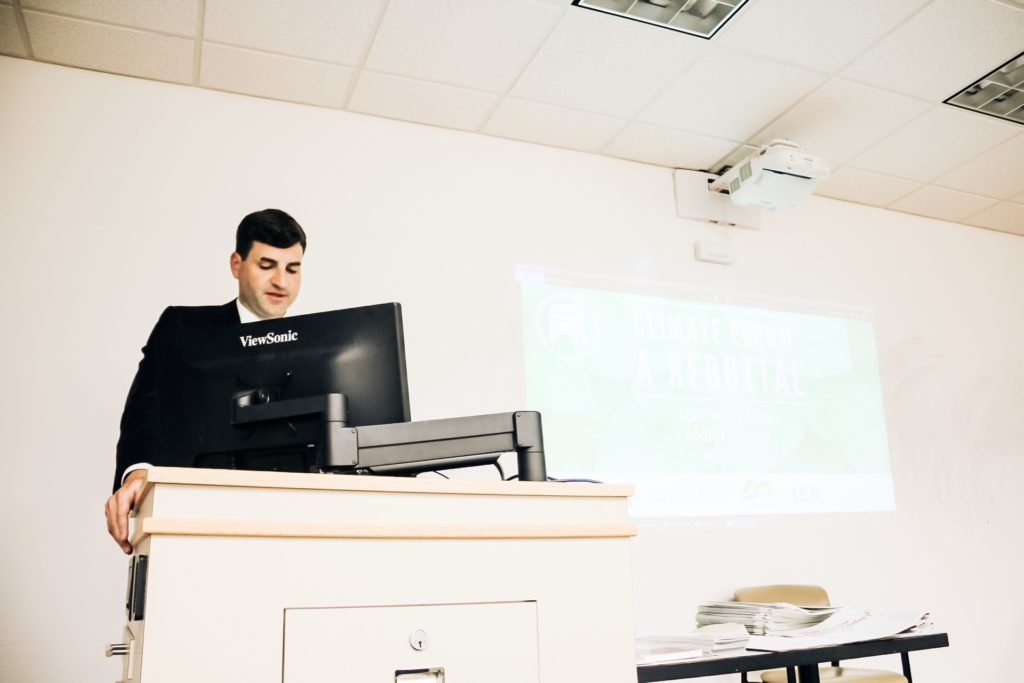
Finally, Kenny Stein, policy Director of the Institute for Energy Research wrapped up the event, discussing the economics and statistics behind energy policy.
CFACT thanks and commends the College Republicans for hosting this event and for standing up to the bullying tactics of the radical left on campus. CFACT also commends the campus police and administrative authorities for not caving into censorship demands but instead enforcing the student code of conduct of respect for this event.
